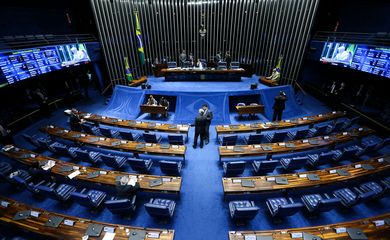New labor code signed into law in Brazil


After turning the new legislation, entitled Labor Modernization Law, official with no vetoes, President Michel Temer stressed that workers' rights have been preserved.

After turning the new legislation, entitled Labor Modernization Law, official with no vetoes, President Michel Temer stressed that workers' rights have been preserved.
“This bill summarizes the way this government operates. As I have been saying, dialog is essential—and also social responsibility. We're preserving all workers' rights, as the Federal Constitution mandates,” he declared.
During a ceremony at the Planalto presidential palace, Temer reiterated the importance of dialog with Congress under his administration. “Since my mandate began, I took the commitment to advance the reforms with significant support from Congress. When there's approval by the Legislative, as has been the case, governing becomes easier. And there's also our dialog with society.”
The final approval of the law comes as the last step in a long trajectory for the government and his allies in Congress. Without mentioning the opposition directly, Temer criticized the political dispute over the overhaul.
“I see the object of the discussion is not the contents. It's just political dispute. It'd be good to discuss the contents. When the dispute is merely ideological, political, it's like being blindfolded, and no contribution is made,” he said.
Regarded among the government's priorities, the approval of the law has divided opinions, but the president and his team guarantee that the modernization of the Consolidation of Labor Laws—or CLT, the Brazilian labor code, introduced in the 40s—will boost employment and provide legal security both to workers and employers.
“Obviously, the world isn't the same as it was in 1943. We're in the 21st century now. And we had to adapt to that,” Temer said.
Some items in the law, however, will be altered, and the government sent Congress the draft of a presidential decree, with ten points to undergo a change, among which controversial issues discussed during deliberations, such as intermittent work, the amount of working hours, and health risks facing pregnant women and nursing mothers in the workplace.
Translated by Fabrício Ferreira
Fonte: New labor code signed into law in Brazil






